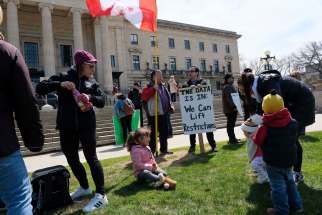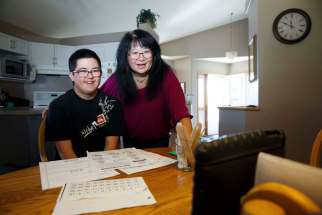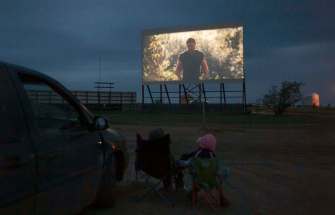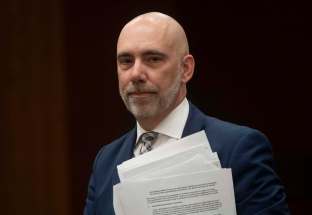Protesting a double standard
Read this article for free:
or
Already have an account? Log in here »
To continue reading, please subscribe:
Monthly Digital Subscription
$0 for the first 4 weeks*
- Enjoy unlimited reading on winnipegfreepress.com
- Read the E-Edition, our digital replica newspaper
- Access News Break, our award-winning app
- Play interactive puzzles
*No charge for 4 weeks then price increases to the regular rate of $19.00 plus GST every four weeks. Offer available to new and qualified returning subscribers only. Cancel any time.
Monthly Digital Subscription
$4.75/week*
- Enjoy unlimited reading on winnipegfreepress.com
- Read the E-Edition, our digital replica newspaper
- Access News Break, our award-winning app
- Play interactive puzzles
*Billed as $19 plus GST every four weeks. Cancel any time.
To continue reading, please subscribe:
Add Free Press access to your Brandon Sun subscription for only an additional
$1 for the first 4 weeks*
*Your next subscription payment will increase by $1.00 and you will be charged $16.99 plus GST for four weeks. After four weeks, your payment will increase to $23.99 plus GST every four weeks.
Read unlimited articles for free today:
or
Already have an account? Log in here »
Hey there, time traveller!
This article was published 11/05/2020 (2046 days ago), so information in it may no longer be current.
Approximately 100 protesters marched Saturday to the Manitoba Legislative Building, in a “Rally for Freedom and Human Rights,” organized by a group called Winnipeg Aware.
For more than an hour they congregated, demanding COVID-19 pandemic lockdowns be lifted, claiming in a news release there is no scientific basis for social distancing and it is “counterproductive to the development of the natural immune system.”
Protesters ignore social distancing, call for end to restrictions
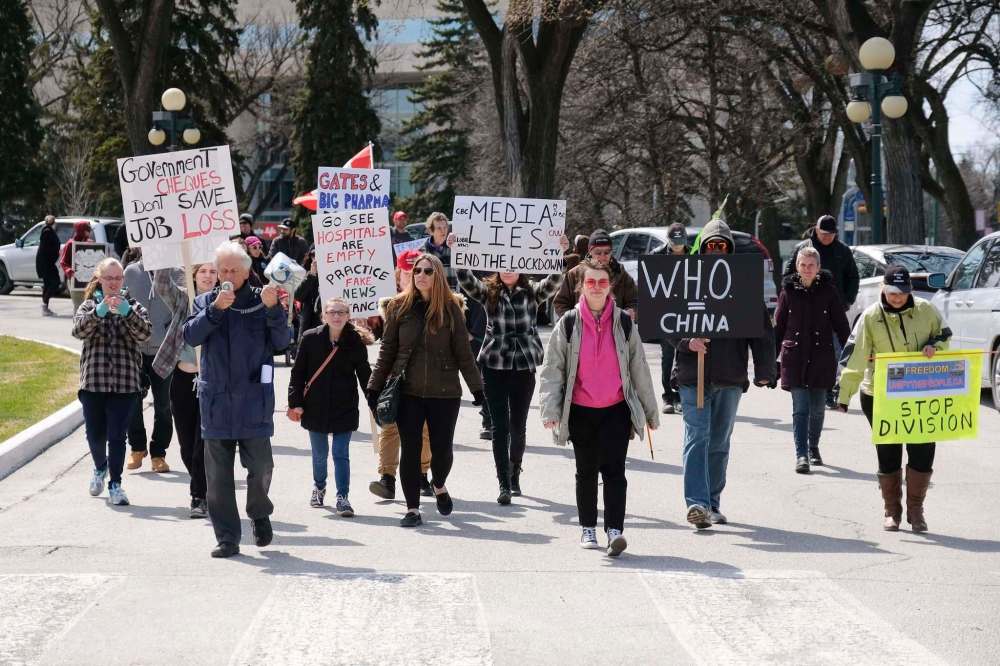
Posted:
Protests calling for an end to COVID-19 restrictions made their way to Winnipeg Saturday.
It’d be easy to call this a “fringe” group — Manitoba Liberal Leader Dougald Lamont called participants “selfish, paranoid, and misinformed” — but it represents four things in our community we cannot ignore.
One: some Winnipeggers don’t care about health-care providers. Leading up to the Mother’s Day weekend, chief provincial public health officer Dr. Brent Roussin warned Manitobans of potential outbreaks of COVID-19, and residents should “certainly avoid large groups, even outdoors.”
Two: virtually all of the rally attendees were white, and appeared to define middle class: healthy, with income and homes where clean, suitable clothing is available. Since Indigenous and poor people are among those disproportionately impacted by the virus, it’s clear supporters of Winnipeg Aware don’t care about (or reflect) those citizens.
Three: although clearly breaking City of Winnipeg bylaws for ignoring a public health order (a fine of $486 per individual), no police, bylaw officer nor any of the almost 50 active community service ambassadors intervened or forced the crowd to disperse.
Four: Winnipeg Police Service public information officer Const. Jay Murray said Saturday the WPS “was aware of the event and monitored it accordingly.” He said the WPS recognizes Winnipeggers have a right to peaceful assembly, adding other groups had gathered before and after the pandemic without police response.
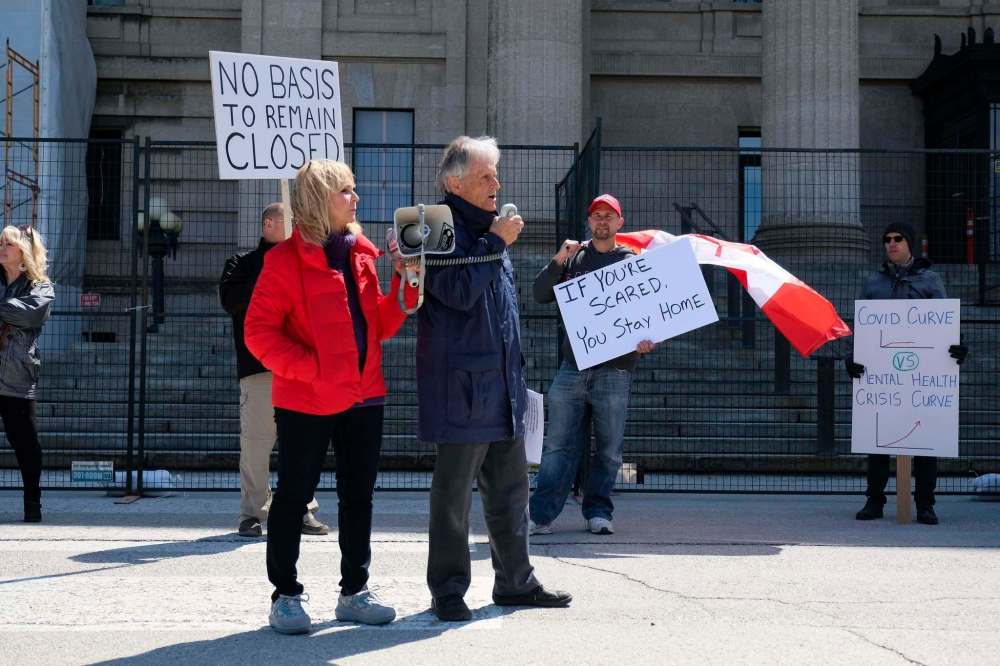
Recently, the only protests have been a few “honk-bys” delivered in cars (such as April 25 at the legislature against public-sector cuts) but on April 12 around 70 (mostly Indigenous) people gathered for a vigil – not a protest – at the intersection of Lagimodiere Boulevard and Fermor Avenue, where 16-year-old Indigenous youth Eishia Hudson was shot to death by police after allegedly stealing liquor. WPS was there.
While some attendees did carry “protest” signs, virtually all practised social distancing (and were encouraged by vigil organizers via social media to do so).
Police attended — not to hand out tickets but to establish vehicular blockades to the area, discouraging attendees who had to walk relatively far to join in.
Manitobans split on allowing civil disobedience
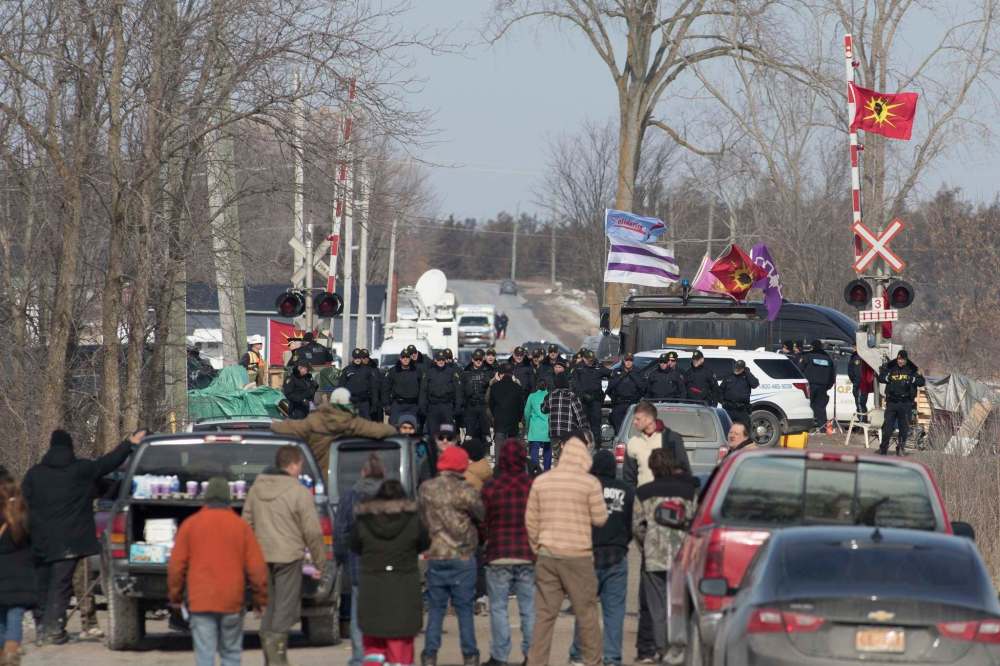
Posted:
More than half of Manitobans polled indicated they favour police using "whatever legal force is required" to end disruptive displays of civil disobedience, such as February's rail blockades in support of the Wet'suwet'en hereditary chiefs' opposition to the Coastal GasLink pipeline through unceded territory.
Had police gone further and shut down the vigil, they likely would have had public support. A recent Probe Research poll commissioned by the Winnipeg Free Press found more than one-half of Manitobans (57 per cent) agree police should be empowered to use any amount of legal force necessary to remove protests and blockades.
The poll also found 42 per cent feel it is acceptable for “members of the public to step in and remove blockades if they see them taking shape.”
When white, privileged people protest, police and the public step aside.
When brown, disenfranchised peoples protest, forces in society intervene to disrupt it.
For more, see the recent “reopen America” protests south of the border. These have been led mostly by white, lower-/middle-class men carrying semi-automatic weapons into city downtowns — even state legislatures — with little resistance.
Imagine a group of Indigenous (or African-American, Latino or any brown) men entering any government building on this continent carrying the same weapons.
Police, citizens, and government would not only act swiftly, but with deadly, “legal” force.
When white people protest, it’s “freedom,” a “right,” and how to “Make America Great Again.” (Which, by the way, was the slogans on red hats a handful of Winnipeggers wore Saturday.)
Imagine a group of Indigenous (or African-American, Latino or any brown) men entering any government building on this continent carrying the same weapons.
Meanwhile, Indigenous-led pandemic response checkpoints on highways — which resemble the blockades Canadians detest so much — are saving lives across North America. Still, they are framed often as a threat.
In nearby South Dakota, Republican Gov. Kristi Noem has called COVID-19 checkpoints installed by tribal leaders on roads passing through Oglala and Cheyenne River Sioux territories “illegal” and threatened them with removal.
Indigenous leaders have refused, stating checkpoints are their only method to stop virus outbreaks. In a statement, chairman of the Cheyenne River tribe Harold Frazier pronounced: “We will not apologize for being an island of safety in a sea of uncertainty and death.”
Those perpetuating uncertainty and death might be 100 or so neighbours, friends, and fellow citizens who might share more with us than we think — especially when we sit idly by.
niigaan.sinclair@freepress.mb.ca
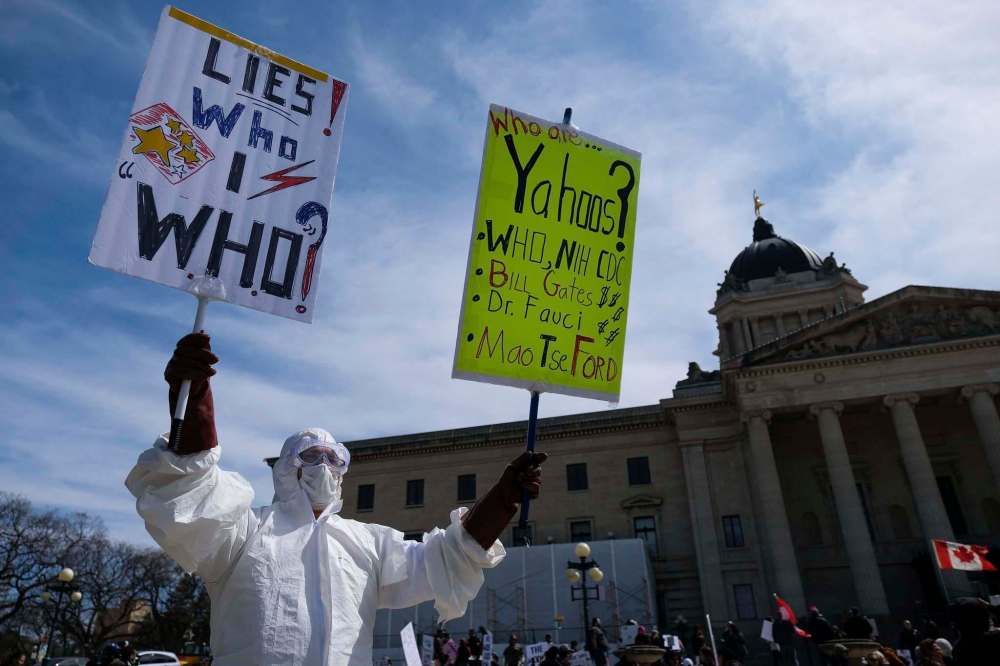

Niigaan Sinclair is Anishinaabe and is a columnist at the Winnipeg Free Press.
Our newsroom depends on a growing audience of readers to power our journalism. If you are not a paid reader, please consider becoming a subscriber.
Our newsroom depends on its audience of readers to power our journalism. Thank you for your support.
History
Updated on Monday, May 11, 2020 8:00 PM CDT: fixes typos
Updated on Monday, May 11, 2020 9:00 PM CDT: Updates story.

